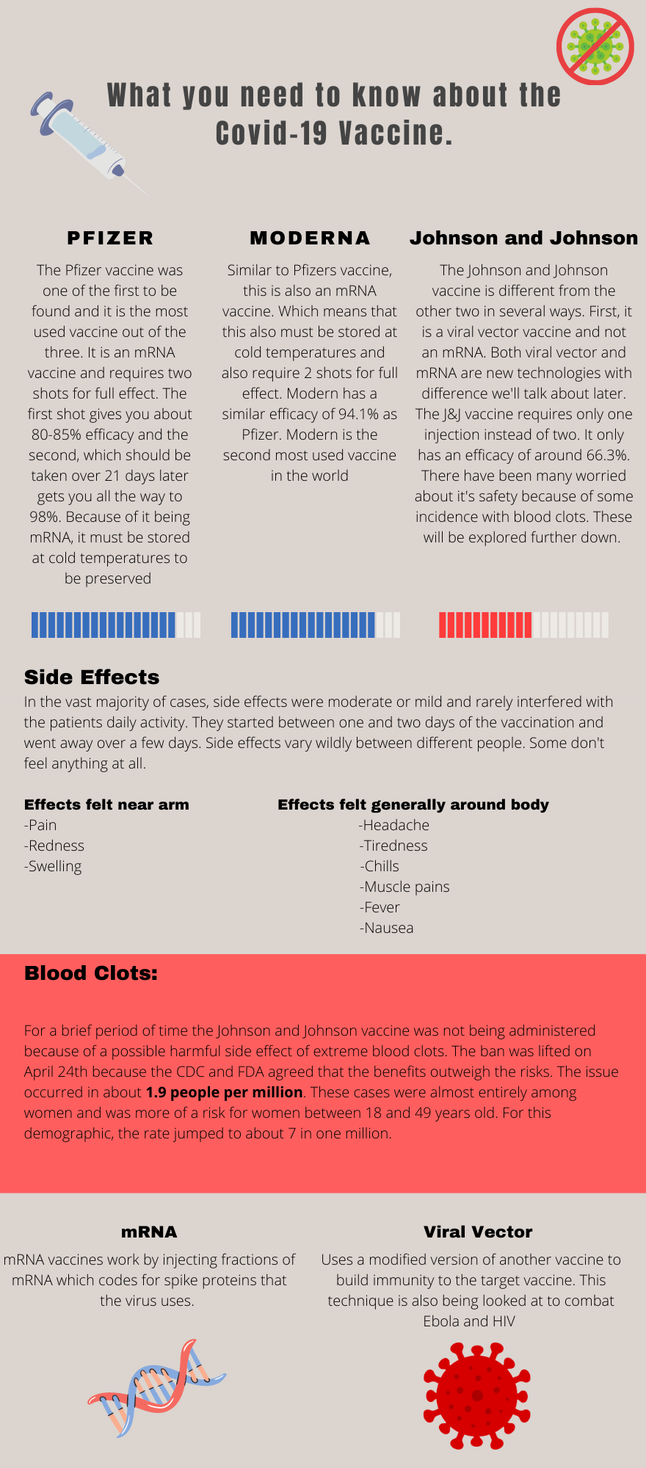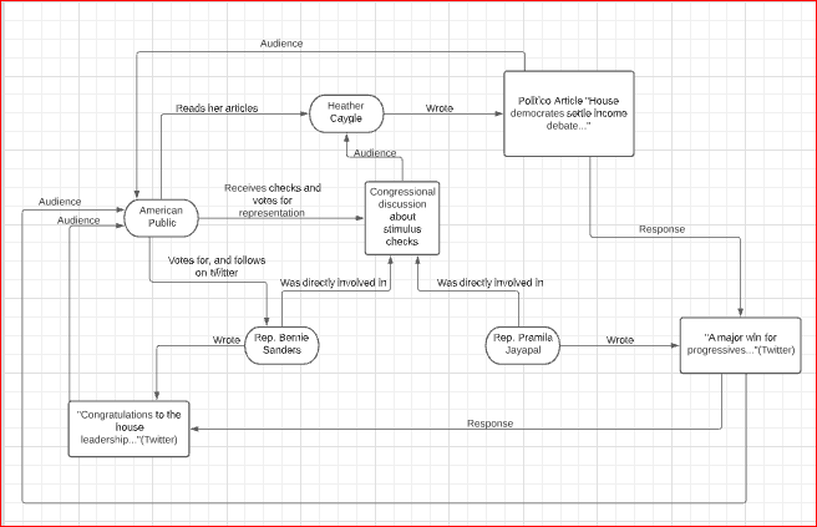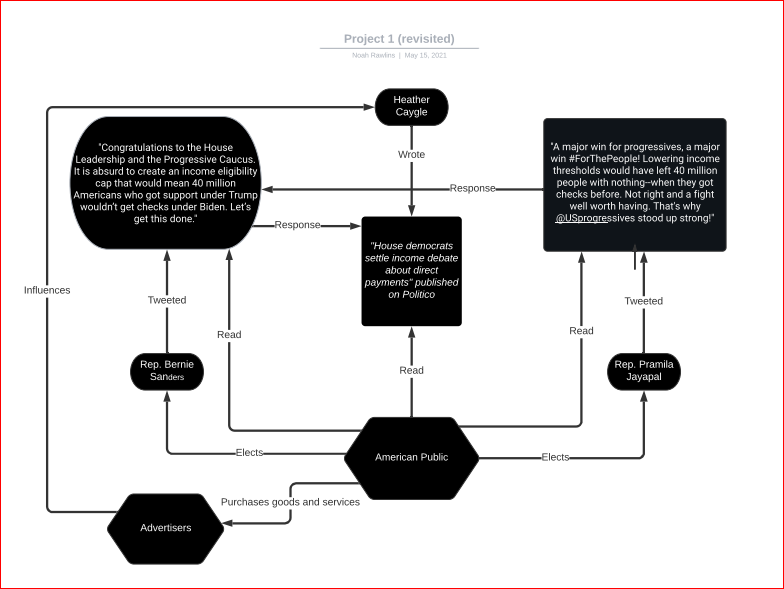$1.9 Trillion dollar stimulus package passes vote in House of Representatives
By Noah Rawlins
March 23, 2021 at 12:32 pm
The House of representative, on March 10th, passed one of the largest government stimulus legislation since the great depression. With a vote of 220 to 211, the bill was sent to President Biden, who is expected to sign in on Friday, March 12th. Many in the democratic party see the bill as a first step in the coming years to expand the country’s social safety net.
The package will include a $1,400 check for any individual earning less than $75,000 a year and any couple earning less than $150,000. However, Biden, with support from moderate democrats, has phased out the check for individuals earning $80,000 or above and couples earning $160,000 or above. This contrasts with the original bill President Biden pushed forward. The bill also expanded the child tax credit and unemployment measures, with parents of children 17 or under receiving periodic deposits of $3,000 to $3,600 a year and people unemployed receiving weekly $300 checks through September 6th.
One of the biggest expenditures in the bill was the funding in response to the ongoing Coronavirus pandemic. Billions were sent to help with contract tracing and expand the number of health workers. The is also a push to increase the availability of vaccines to adult Americans, with the President stating that all American adults should receive a vaccination by the end of May. This differs with his original time estimate of July.
State and local governments are also receiving large deposits to account for the loss in tax revenue and to offset the large drop in government jobs since the start of the pandemic. This caused some splits within the democratic party as moderates said the funding would go into infrastructure and Covid-19 relief, while many on the left said that they would use this to cut local taxes instead. The final bill has $350 billion going to these state and local governments. This is in addition to $130 billion dollars for the eventual reopening of schools, both lower and higher. This funding is meant to reshape and improve ventilation, implement social distancing, provide PPE for staff and students, and, in the case for higher education, provide support for scholarship programs.
There were several new payments added to this bill over the predecessors. The increase of the value of the COBRA health insurance program from 85% to 100%, about $500 million for FEMA emergency food and shelter, and another $8.5 Billion to assist local health care providers.
While there were many on the Democratic side cheering the bill as an accomplishment, there was some blowback for the exclusion of the minimum wage increase to $15 an hour. Sen. Bernie Sanders, who originally proposed the amendment, said that this will not be the last time the increase will be brought before Congress reports the Washington Post. Almost 32 million Americans would have seen a pay increase from the amendment being passed. However, it was ruled as not permissible by a senate parliamentarian. The bill has also gotten a lot of praise from many on the Democratic side for it’s boldness. It is one of the largest pieces of aid since the great depression and many, such as South Carolina Rep. James E. Clyburn, say that this bill will be the best health care legislation since the Affordable care act, the best for impoverished African Americans since the Civil rights act of 1974, and would be one of the best laws to fight poverty in a generation.
By Noah Rawlins
March 23, 2021 at 12:32 pm
The House of representative, on March 10th, passed one of the largest government stimulus legislation since the great depression. With a vote of 220 to 211, the bill was sent to President Biden, who is expected to sign in on Friday, March 12th. Many in the democratic party see the bill as a first step in the coming years to expand the country’s social safety net.
The package will include a $1,400 check for any individual earning less than $75,000 a year and any couple earning less than $150,000. However, Biden, with support from moderate democrats, has phased out the check for individuals earning $80,000 or above and couples earning $160,000 or above. This contrasts with the original bill President Biden pushed forward. The bill also expanded the child tax credit and unemployment measures, with parents of children 17 or under receiving periodic deposits of $3,000 to $3,600 a year and people unemployed receiving weekly $300 checks through September 6th.
One of the biggest expenditures in the bill was the funding in response to the ongoing Coronavirus pandemic. Billions were sent to help with contract tracing and expand the number of health workers. The is also a push to increase the availability of vaccines to adult Americans, with the President stating that all American adults should receive a vaccination by the end of May. This differs with his original time estimate of July.
State and local governments are also receiving large deposits to account for the loss in tax revenue and to offset the large drop in government jobs since the start of the pandemic. This caused some splits within the democratic party as moderates said the funding would go into infrastructure and Covid-19 relief, while many on the left said that they would use this to cut local taxes instead. The final bill has $350 billion going to these state and local governments. This is in addition to $130 billion dollars for the eventual reopening of schools, both lower and higher. This funding is meant to reshape and improve ventilation, implement social distancing, provide PPE for staff and students, and, in the case for higher education, provide support for scholarship programs.
There were several new payments added to this bill over the predecessors. The increase of the value of the COBRA health insurance program from 85% to 100%, about $500 million for FEMA emergency food and shelter, and another $8.5 Billion to assist local health care providers.
While there were many on the Democratic side cheering the bill as an accomplishment, there was some blowback for the exclusion of the minimum wage increase to $15 an hour. Sen. Bernie Sanders, who originally proposed the amendment, said that this will not be the last time the increase will be brought before Congress reports the Washington Post. Almost 32 million Americans would have seen a pay increase from the amendment being passed. However, it was ruled as not permissible by a senate parliamentarian. The bill has also gotten a lot of praise from many on the Democratic side for it’s boldness. It is one of the largest pieces of aid since the great depression and many, such as South Carolina Rep. James E. Clyburn, say that this bill will be the best health care legislation since the Affordable care act, the best for impoverished African Americans since the Civil rights act of 1974, and would be one of the best laws to fight poverty in a generation.



